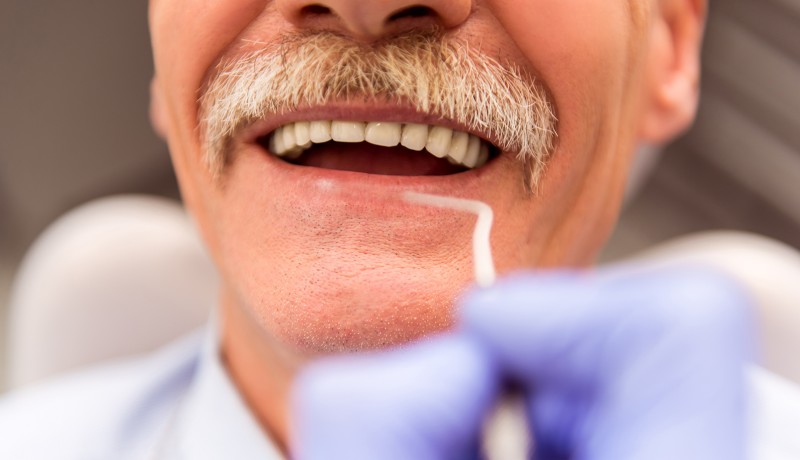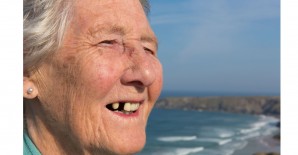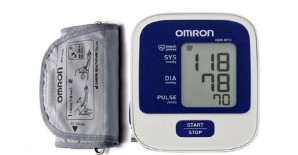
Health

Dr Hrishikesh Pusalkar, BDS, MDS (prosthodontics, crown and bridge, implantology), Kokilaben Dhirubhai Ambani Hospital, offers some valuable tips on oral hygiene.
With regard to oral hygiene, what type of diseases and problems do you see in people over the age of 50?
- Tooth decay: People over 50 get cavities on the surfaces of their teeth, a problem that does not usually occur in earlier years. They can also get them around old fillings or at the roots of their teeth.
- Dry mouth: Saliva protects against tooth decay. If you’re not producing it, your teeth may be at risk. The calcium and phosphate present in saliva prevent de-mineralisation of teeth. Dry mouth is often caused by medications; as people age, they take more medications. This condition can also result from smoking or conditions that cause damage to the salivary glands. Many systemic diseases such as diabetes, arthritis, osteoporosis and AIDS, as well as therapies for systemic diseases, can directly or indirectly compromise oral tissues.
- Periodontal diseases: Periodontal diseases are infections caused by bacteria in the biofilm (dental plaque) that forms on oral surfaces. The basic division in the periodontal diseases is between gingivitis, which affects the gums, and periodontitis, which may involve soft tissue and bone supporting the teeth. Gingivitis and milder forms of periodontitis are common in adults. The percentage of individuals with moderate to severe periodontitis, in which the destruction of supporting tissue can cause teeth to loosen and fall out, increases with age. Certain prescription drugs can also lead to gingival overgrowth. These include the anti-epileptic drug phenytoin (Dilantin); cyclosporin, used for immunosuppressive therapy in transplant patients; and various calcium channel blockers used to treat heart disease.
What are the causes or diseases that cause the elderly to lose teeth and what type of precautions do you advise?
- Periodontal disease: Owing to poor oral hygiene, this is a leading cause of tooth loss.
- Trauma: Teeth can be ‘knocked out’ owing to trauma.
- Decay: This could extend to the bone around the ends of the roots, leading to extraction.
- Cracks/fractures: Clenching and grinding habits (bruxism) or mechanical reasons such as lack of sufficient support from other teeth cause extreme stress to the teeth including cracks and fractures.
- Poor nutrition: Foods that contain a lot of sugar, carbohydrates and acids are harmful for teeth.
Precautions to avoid tooth loss include brushing twice daily, especially before going to bed, with toothpaste containing fluoride. Also, clean between the teeth daily, with dental floss or interdental cleaners. Eat nutritious and balanced meals and avoid sticky foods. Dental sealants applied to the chewing surface of the back teeth can protect against decay. Visit your dentist regularly for oral examination and professional cleaning.
Is it prudent to get dentures or tooth replacement once people start missing their teeth? What are the options available?
Yes. Every tooth counts. Missing several teeth can influence your daily life. It can lower chewing efficiency and affect general health. Besides the loss of function, it also affects appearance and self-esteem. When you lose teeth, it disturbs the interplay between teeth and bone. The bone and gums are no longer stimulated enough and they shrink. This affects adjacent teeth until they collapse and the teeth in the opposite jaw, which can start growing into the gap. Missing teeth can make your face look old and wrinkly, and your cheeks become hollow and saggy. Implants are the best and most comfortable replacement option for teeth. An implant is essentially an artificial titanium screw anchored in the bone on which a crown is placed. It feels like a real tooth and does not need other teeth for support. Another option is a fixed bridge, in which three or more crowns are fused together. The one in the middle (pontic) replaces the missing tooth. There is also a removable option of partial or complete dentures.
Can you provide some tips to keep gums and teeth healthy?
Small changes in your daily routine can make a big difference in the long term. First, brush twice daily using fluoride toothpaste. The brush you use should be soft to medium with multi-tufted, round-ended nylon bristles. The head of the brush should be small enough to reach all parts of the mouth. Clean between teeth, using interdental floss. Practice good eating habits; consume few sticky and sugary foods and drinks; and get regular dental checkups. All this will ensure healthy gums and teeth.
Featured in Harmony — Celebrate Age Magazine June 2016
you may also like to read
-
Hot tea!
If you enjoy sipping on that steaming hot cup of tea, think twice. New research establishes a link between drinking….
-
Weight and watch
If you have stayed away from lifting weights at the gym, thinking it might not be a good idea for….
-
Toothy truth
Research has established a clear association between cognitive function and tooth loss when cognitive function score was categorised into quintiles…..
-
PRODUCT OF THE MONTH
Automatic Blood Pressure Monitor Measure your blood pressure and pulse rate with no fuss Hypertension, or high blood pressure, could….







